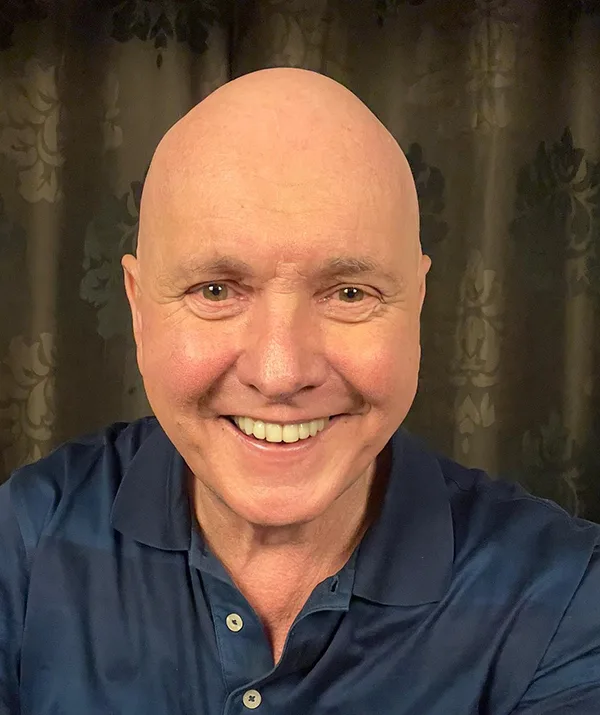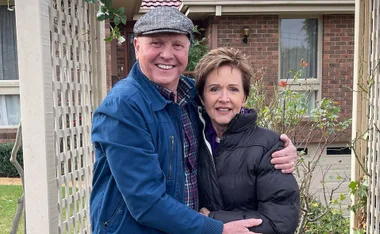Alan Fletcher is a familiar face known to many Australians as Dr Karl Kennedy on beloved soap Neighbours.
So when the 65-year-old, who’s played Ramsay Street’s favourite GP since 1994, sported a shaved head in episodes earlier this year, fans were unsurprisingly concerned about his health.
But what viewers didn’t know was that Alan had lost his hair due to a very common yet non-life-threatening disease.

Alan proudly sported his new ‘do in early 2022.
(Image: Instagram)In May, Alan took to social media to reassure his fans he was okay and reveal he had been diagnosed with Alopecia Areata – an autoimmune disease that causes hair loss.
Alan shared a selfie showing sporting a bald head before later explaining his hair loss in a video.
“Lots of fans have expressed a little concern about my health and there have been media enquiries as well,” he began.
“I just want to put something to rest. I am absolutely fine, I’m fit and well and working on Neighbours and having a great time.

Alan isn’t ashamed of his hair loss.
(Image: Instagram)“But, I can report to you, I do have a disorder called alopecia areata.”
Alan explained that after suffering “patchy hair loss”, he decided to shave it all off.
“I started to lose hair into my beard and then on my scalp in patches. So eventually I shaved my beard off, and then my hair became so patchy on my head, I had to get rid of most of that as well,” he explained.
Alan isn’t fazed by his new look though! He shared an Instagram photo showing off his bald head with a big grin, writing: “I have no problem with it. In fact, it’s kind of fun.”
Alopecia areata is an autoimmune disease which causes hair loss ranging from patchiness to complete baldness. Sometimes the hair can grow back or is only lost in a few spots, while others can suffer more extreme and permanent hair loss.
While there are several causes behind alopecia, most health experts believe that genetics play the biggest role.
Hormonal changes and medical conditions can also play a role in someone’s likelihood of developing the disorder.

